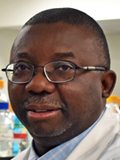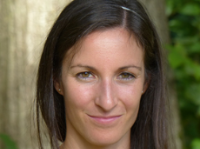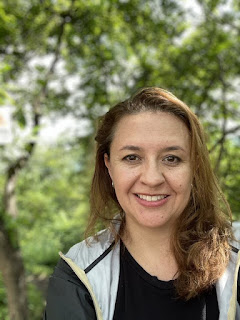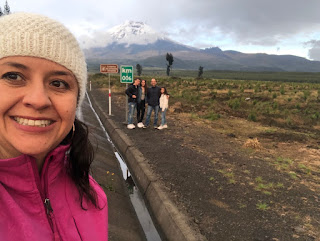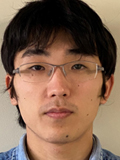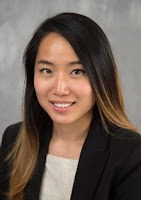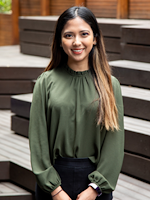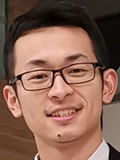The Honored Student Award encourages and recognizes graduate students doing research in one of the areas represented by AOCS Divisions. The award is sponsored by the AOCS Foundation. We are delighted to recognize this year's honored students! Get to know them in the spotlights below:
Snigdha Guha
Snigha grew up in New Delhi, India. She completed her bachelor's and master’s degree in microbiology from the University of Delhi, India. Following that, she pursued a second master’s degree in food science and technology - quality assurance at the University of Reading, United Kingdom. She joined the Ph.D. program in food Science and technology at the University of Nebraska-Lincoln (UNL) in 2017 and is currently in the fourth year of her Ph.D.
Snigha works on dietary bioactive peptides and her research topic is to evaluate the efficacy of bean-derived bioactive peptides to reduce vascular inflammation and related pathophysiology. She is also a teaching assistant for the courses food chemistry and advanced food analysis offered in the Food Science Department at UNL. Besides research, a few of her hobbies include traveling, music, photography and playing sports.
Can you tell us about your current research?
My research focuses on dietary bioactive peptides and their effects on human health. I have made some significant contributions towards the potential of dietary gamma-glutamyl peptides (naturally occurring in dry edible beans) to reduce vascular inflammation and prevent the development of atherosclerosis. Most of the plant-based protein research is focusing on exploring the functional properties and development of an innovative product, and my research would be valuable to provide the scientific evidence and mechanistic understanding about the biological activities of plant-based proteins and peptides above and beyond the traditional nutritional value.
What was your reaction when you learned you had won the award?
Since I am back home in India for the holidays, I got the email about receiving this award the first thing in the morning, and it was the best news ever. This award is one of the most prestigious awards of AOCS and I was really hoping to get it, but it was really unexpected and such a pleasant surprise. I was so excited to receive it and told my family that it was the best Christmas gift ever. I was also very excited to inform my advisor who had supported me throughout my research. I believe it was our team effort which led me to this award.
How has AOCS helped develop your career?
AOCS has been a great platform so far for connecting with professionals in the same research field as I am. I learned a lot through the various showcases of research in the Health and Nutrition and Protein and Co-Products Divisions. They have helped me guide my research by keeping me updated with the various research trends in my field. I got to connect with several faculty members as well as some industry professionals, learning about their research interests, which has definitely helped me get some idea about my post-graduation choices.
Snigha is also the recipient of the 2022 Peter and Clare G. Kalustian Award. You can read about that award here.
Lingyi Liu
Lingyi is a Ph.D. student in the Department of Food Science and Technology at the University of Nebraska-Lincoln. She joined the research group of Dr. Ozan Ciftci in 2018. Lingyi is currently working on 3D food printing focused on high-oil-content paste. She has authored and co�authored 22 research articles in peer-reviewed journals with a citation of 327.
Can you tell us about your current research?
My research focuses on developing a high-oil-content paste with outstanding 3D printability by using liquid oil and other common food macronutrients as printing materials. Formulating the potential food ingredients and quantifying the printability are complex tasks for extrusion-based 3D food printers. Most of the current studies focused on carbohydrate-based foods, and only a few works targeted lipid-based systems. Adding the triglyceride composition and structure would affect the mixture formulation and consequently alter the functional properties of final printed products, including the melting point range, solid fat index and crystal structure. I aim to improve physical stability, oxidative stability, oil-controlling capacity and post-processing potentiality by controlling the microstructures of 3D printed food via particle engineering technology and/or lipid-based fat substitute technology.
What was your reaction when you learned you had won the award?
I heard the news just on the last workday before the Christmas holiday. I was so excited and could not wait to share it with my supervisor and labmates.
How has AOCS helped develop your career?
AOCS provides valuable knowledge, insights, and inspiration in the area of food lipids and offers connections, friendships, and collaboration with other researchers.
Lingyi is also the recipient of the 2022 Manuchehr Eijadi Award. You can read about that award here.
Han Peng
Han Peng is a Ph.D. candidate working alongside the dynamic research group in Dr. Fereidoon Shahidi's lab. He received a bachelor’s degree in bioengineering and master’s degree in nutrition, both at Nanchang University. His current work focuses on the phenolic chemistry applied in the fields of novel food additives, food supplements, and pharmaceuticals by advancing their related physicochemical properties, health effects, toxicity, legal status, and market research.
Can you tell us about your current research?
For decades, there has been a general desire to label food and natural health products under the so-called “clean label” category and to avoid the use of synthetic and artificial chemicals. In this connection, various natural/naturally-derived antioxidants were proposed to replace the purely synthetic antioxidants. The development of current commercial antioxidant markets is lagging compared to the laboratory development due to strict regulations and the absence of driving forces.
During my Ph.D. program, more than 60 different novel derivatives of natural phenolics were designed, synthesized, identified and purified. The synthesis routine was optimized, and some of these phenolic analogs were validated with competitive price, excellent safety, antioxidant efficacy and lipophilicity which, therefore, have been screened out and proposed as potential novel food and pharmaceutical ingredients during our most recent commercialization project. These novel antioxidants are expected to significantly diversify the list of commercial antioxidants and health ingredients in the food, cosmetic, nutraceutical and pharmaceutical market in the foreseeable future.
What was your reaction when you learned you had won the award?
I am deeply honored to be recognized by AOCS.
How has AOCS helped develop your career?
I have been an AOCS member since 2019 and later became a leader of the Student Common Interest Group (SCIG) of AOCS and an active reviewer of JAOCS. AOCS is a fantastic platform for professionals working in lipid and protein�-related academia and industry, which advances the most practical and cutting-edge information via various channels and enables people to connect with targeted industries and specialists. AOCS provides me with tremendous resources in reshaping and broadening my research and commercialization ideas and inspires me to contribute back to the academic community.


